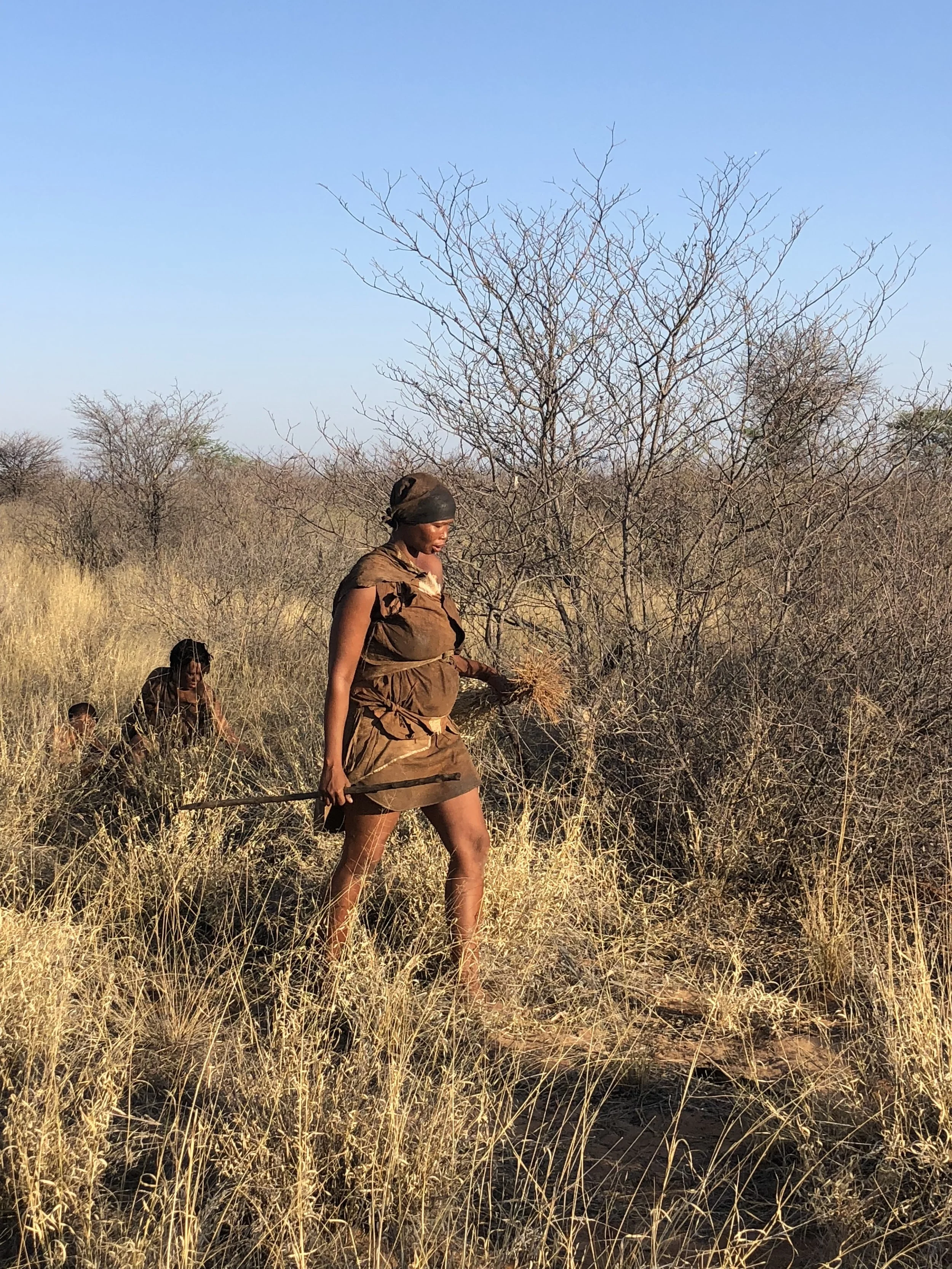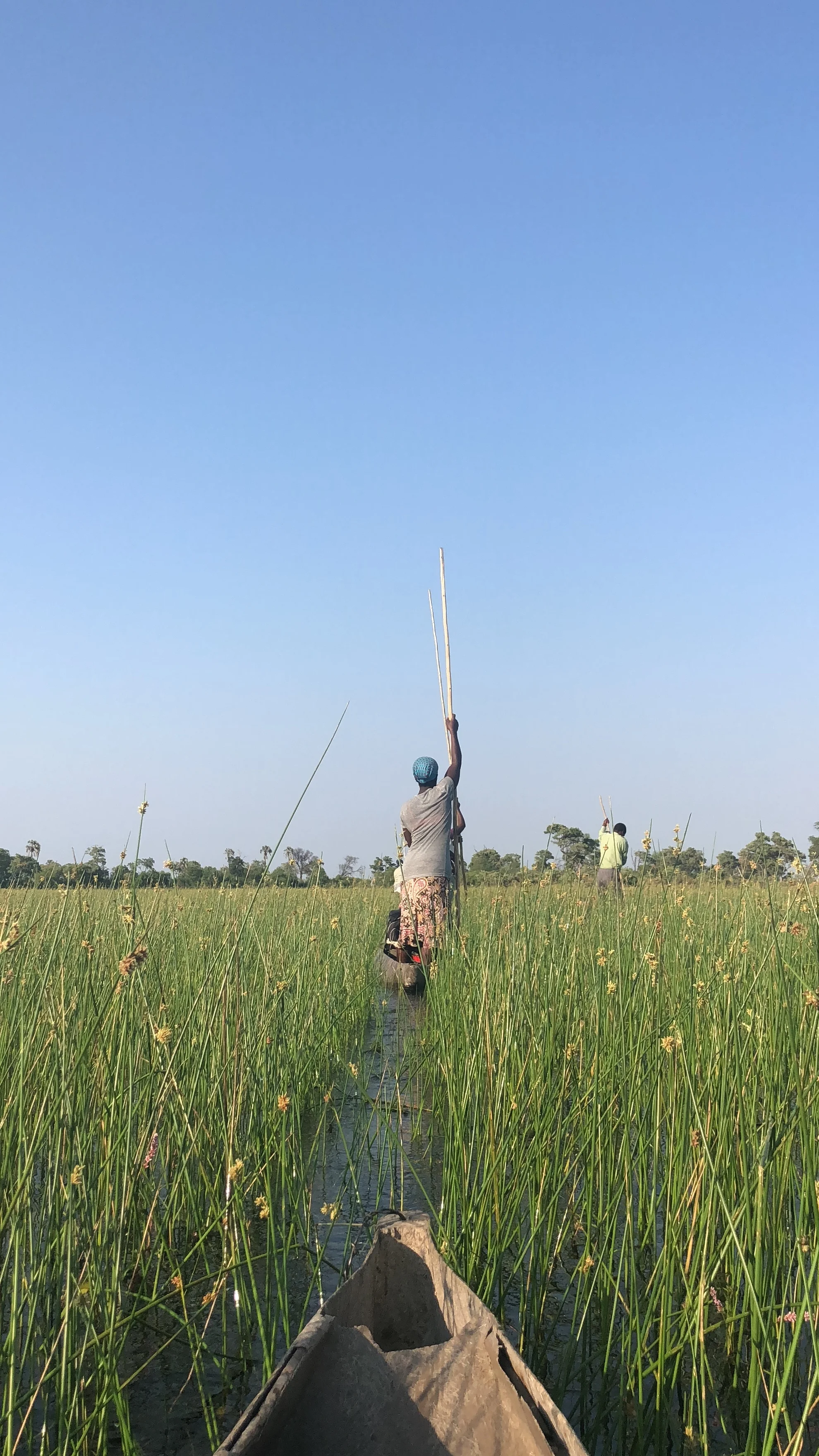A Window Into The Lives Of Namibia’s Kalahari Bushmen
One of the most fascinating things about immersive travel is learning about another people’s culture, the ways in which they survive and thrive in their respective habitats and climate, and the customs and traditions they follow.
On our village walk on the outskirts of Windhoek, Namibia, we had the chance to experience an in-depth view into the lives of the Kalahari bushmen. We each received a formal Kalahari greeting, where the Chief of the tribe extended his right arm and placed his hand on the person’s right shoulder, encouraging them to do the same to complete the exchange of greeting. This practice was done with every member of the group being introduced, and was a sign that the Chief was welcoming you into the presence of his people.
Throughout the course of the village walk, our group was introduced to many plants, practices, and natural remedies necessary for survival out in the wild. The Chief demonstrated the types of tree branches used for brushing teeth, roots that are cultivated and used for the dying of animal skins worn as clothing and for washing your hands, and herbs used as natural remedies for ailment like roots to chew for Malaria prevention and the leaves of certain plants for an upset stomach.
The women of the tribe carried an ostrich egg in the folds of their clothing that had been hollowed out to carry water; the hole at the top being plugged with whistling acacia tree roots. The Chief explained that he was responsible for providing for his tribe by hunting for local game in the area using poisoned arrows and would usually go in search of an Oryx, Kudu, Impala, or Springbok to feed his family.
Today, many of these customs and daily rituals are no longer practiced as the local government has placed many restrictions on the hunting of wild animals, basic health requirements to be followed in order to receive funding and care, however some of the elders continue to pass down their knowledge in an attempt to keep their culture alive.
This knowledge, of course, is also passed onto travellers who visit their lands and wish to learn about their way of life. If you enjoy these types of experiences, spend some time with these wonderful people like we did and maybe even try to practice your clicks to better understand local dialects like Dxanakhoi (the ‘X’ is pronounced with a click, which is much more difficult than you think).
All Images: Rose-Marie Huet










